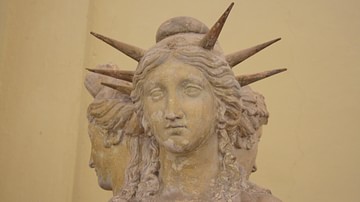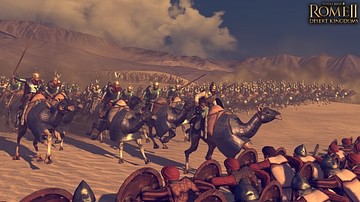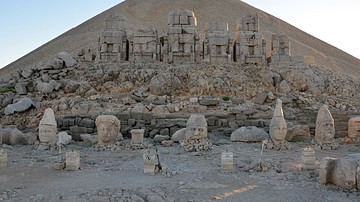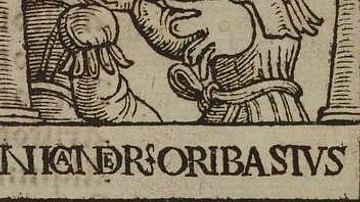Search
Search Results

Definition
Baal
Baal (also given as Ba'al) is a Canaanite-Phoenician god of fertility and weather, specifically rainstorms. The name was also used as a title, however, meaning "Lord" and was applied to a number of different deities throughout the ancient...

Definition
Hecate
Hecate (Hekate) is a goddess of Greek mythology capable of both good and evil. She was associated with witchcraft, magic, the Moon, doorways, and creatures of the night like hell-hounds and ghosts. Hecate often carries a torch in her connection...

Definition
Moses
Moses (c. 1400 BCE) is considered one of the most important religious leaders in world history. He is claimed by the religions of Judaism, Christianity, Islam and Bahai as an important prophet of God and the founder of monotheistic belief...

Definition
Kingdom of Saba
Saba (also given as Sheba) was a kingdom in southern Arabia (region of modern-day Yemen) which flourished between the 8th century BCE and 275 CE when it was conquered by the neighboring Himyarites. Although these are the most commonly accepted...

Definition
Abraham, the Patriarch
In Judaism, Christianity, and Islam, Abraham is a venerated patriarch whose relationship with God provides the foundational story for God's beneficial relationship with humanity. According to biblical tradition (and some say myth), Abraham...

Definition
Commagene
The Kingdom of Commagene (163 BCE - 72 CE) was a Hellenistic political entity, heavily influenced by Armenian and ancient Persian culture and traditions, established in southwestern Anatolia (modern-day Turkey) by Ptolemaeus of Commagene...

Definition
Ankhsenamun
Ankhsenamun (born c. 1350 BCE and known as Ankhesenpaaten in youth) was the daughter of Akhenaten and Nefertiti of the 18th Dynasty of Egypt. She was married to her father and may have borne him one daughter, Ankhesenpaaten Tasherit ('Ankhesenpaaten...

Definition
Artaxerxes II
Artaxerxes II (r. 404-358 BCE, also known as Artaxerxes II Mnemon) was the 10th monarch of the Achaemenid Empire (c. 550-330 BCE). He was the son of Darius II (r. 424-404 BCE) and Parysatis (who was Darius II's half-sister) and older brother...

Definition
Oribasius
Oribasius (c. 320-400/403 CE) was the physician and political advisor of the Roman emperor Julian the Apostate (r. 361-363 CE). A native of Pergamon, a rich and powerful Greek city in Mysia, he studied medicine and oratory and belonged to...

Article
The Maccabean Revolt
The Maccabean Revolt of 167-160 BCE was a Jewish uprising in Judea against the repression of the Seleucid Empire. The revolt was led by a country priest called Mattathias, and his military followers became known as Maccabees. Successful...